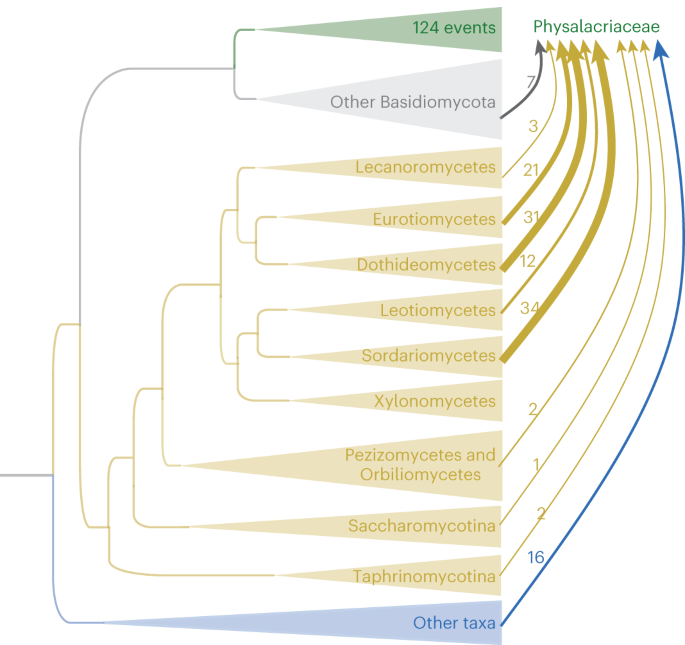
- Select a language for the TTS:
- UK English Female
- UK English Male
- US English Female
- US English Male
- Australian Female
- Australian Male
- Language selected: (auto detect) - EN
Play all audios:
As the Covid outbreak continues in India, students are caught in the eye of a storm. Administrative bodies have been dithering over whether or not online examinations should be conducted.
The University Grants Commission has _reportedly recommended_ scrapping the online exams for final-year students, while human resource development minister Ramesh Pokhriyal _tweeted that_
the “foundation for revisited guidelines shall be health and safety students, teachers and staff”. Earlier in April, the UGC had said that final-year examinations could happen in July.
Meanwhile, proceedings are on in the Supreme Court today on the cancellation of Class 10 and 12 Central Board of Secondary Education examinations. Since the Covid crisis hit India in late
January, educational institutions were among the first to shut down to prevent the spread of the virus. Overnight, the educational apparatus shifted to an online mode of learning. However,
it wasn’t a smooth transition, especially when there are vast disparities in access to the internet. As much as _60 percent_ of the Indian population doesn’t own a smartphone, yet alone a
stable internet connection. Many students from the country’s hinterlands faced difficulty in adapting to the new medium. Ignoring all these concerns, some universities still proposed
conducting online exams. Here is a list of some of them, and the concerns of their students. DELHI TECHNOLOGICAL UNIVERSITY In a notice dated April 27, 2020, the DTU examination branch
declared that final-year students will have to appear for online exams. Agitated students signed a petition against this decision and sent it to Delhi chief minister Arvind Kejriwal, but the
university made no changes to its plans. The online exams began on June 6, as notified. A B.Tech student at DTU told _Newslaundry_: “Online exams should not be conducted during a pandemic.
Students are already struggling with plenty of issues due to current circumstances, conducting exams during these times will only make matters worse.” An exam notification issued on May 30
has detailed instructions for the students: “Students shall require the following for appearing in online end term examination: * A Computer/Laptop with –Minimum RAM of 2GB and having
integrated/external Web-Camera and Microphone. * Google Chrome Browser (Ver. 75 or above) should be installed.Make sure that pop-up blocker is disabled on your browser. * An internet
connection with minimum speed of 1Mbps. * Web-Camera and Microphone should be enabled by default setting.” Concerns have been expressed about the unavailability of these resources for many
students during a pandemic. To address this, the university added this in the detailed instructions for the examinations: “Students who are not in position to appear in online End Term
Examination due to unavailability of internet connectivity should apply to COE via an online form along with proper justification prior to the conduct of online ETE. For such students,
offline end term examinations will be conducted after opening of lockdown and due approval of the competent authority”. But this also begs the question: Is it feasible to then conduct the
exam for a handful of privileged students? Another B. Tech student said, on the condition of anonymity, “I find it a much better option than to give offline exams in this situation.
Although, the university must keep in mind the interests of students who aren’t able to appear for exams.” DELHI UNIVERSITY Through_ several notifications_, the DU administration has
promoted online classes. However, the administration’s decision to conduct online open book examinations was met with opposition from the students. On June 14, the university _announced_
that In case the situation does not appear to be normal in view COVID-19 and to maintain social distancing, safety and health of the students, the university will adopt alternative mode of
examinations i.e. Open Book Examinations (OBE) for final semester/term/year UG and PG students of all programmes and streams along with arrears (ER) of previous semesters/term/year.” Since
then, the university has issued guidelines and a datesheet for the exams. Shaurya Singh Thapa, a third-year history student at Hindu College, told_ Newslaundry_ that it’s “irresponsible” for
the UGC to assume that everyone is comfortable enough to write exams from their homes. “I do see some effort on their part to help people from a lower socio-economic strata or PwD
categories, but at the same time, the decision to conduct online exams remains inefficient and insensitive,” Shaurya said. “While the UGC has done a better job than expected, online exams
shouldn't happen. Other leading colleges have also canceled their exams, but DU seems adamant.” Ankit Kumar, a third-year student at Kirori Mal College, said, “They have made a mockery
of our final semester by pushing us to the online medium and sending laughable PDFs. Now they want us to take online exams by copying from books. They are making fun of this reputed
university. Out of four papers in my course, only one professor bothered to take online classes which were attended by less than 20 percent of the class. A lot of students couldn’t even log
in due to internet restrictions. How can they then think of attending online classes? I am afraid that the consequences of this can be catastrophic for the final-year students.” Many
students also took to _social media_ to express their discontent. To provide for students who are unable to appear for the online open book examinations, the administration issued a_
notification_ saying it would “give such students one more chance to appear for the conventional mode of examinations as and when the present situation improves. The conventional mode of
examinations in such case if required shall be conducted after the publication of results of OBE.” In the context of Kashmiri students pointing out the poor internet in their homes, the
notification said: “The University of Delhi is bound to protect the interests of those students who are residing in areas like Jammu and Kashmir and other such areas all over India which
lack the internet and hardware facility required for the OBE and have stuck up at their places due to the Covid-19 pandemic. To facilitate such students the University of Delhi, as a major
measure, has finalized to engage Common Service Centres (CSC), under the Ministry of Electronics and Information Technology, Government of India.” Common Service Centres were introduced
under the National e-Governance Plan in 2006 _by_ Ministry of Electronics and information technology with the objective of providing “high quality and cost-effective video, voice and data
content and services, in the areas of e-governance, education, health, telemedicine, entertainment as well as other private services” in rural areas. The university released a _notification_
on June 22, describing the process to access the CSCs across the country. On June 21, several students _organised a protest_ at DU’s arts faculty but were detained by the police for
violating Section 144. They were released with a warning. AMBEDKAR UNIVERSITY, DELHI Ambedkar University has resorted to online assessment to mark its students. However, the administration
clarified that no student will be detained for this semester. A notification read, “Given the exceptional circumstances that have prevailed in the Winter Semester 2020, the performance of a
student in this semester will not count for progressing to Monsoon Semester 2020. In other words, no student will be detained based on the performance in Winter Semester 2020”. A second-year
bachelor’s student of humanities and social science at the university, said, “Due to a continuance assessment system, the university has been able to mark students efficiently. Some
students have suffered problems due to the online assessment system but they are being helped from the administration. Not an ideal way of marking, but a pandemic situation has forced us to
change tracks.” PANJAB UNIVERSITY, CHANDIGARH Panjab University came out with a “standard operating procedure” on June 8, according to which the university plans to amend its offline exam
procedure. The university proposed that appropriate “social distancing” measures would be taken to ensure the safety of the students according to the SOP and UGC guidelines. “It is planning
for phased examinations with students of terminating semesters appearing at the beginning of July, followed by the intermediate semesters’ students,” _said_ Parvinder Singh, controller of
examinations, Panjab University. He added, “However, students and staff from red zones and containment zones won’t be permitted to sit in exams.” This was worrying for the students of
Chandigarh, as the entire region falls under a red zone. Furthermore, the university has had its hostels converted into quarantine centres. Student organisations have been calling for the
cancellation of exams keeping in mind the safety of the students. COTTON UNIVERSITY, GUWAHATI The administration of Cotton University, Guwahati, has tentatively scheduled its offline exams
in July. The mid-semester exams, however, were conducted online with students either tasked with projects or assignments to be completed in lieu of exam papers. Students feel that the
university didn’t consider all factors before announcing the exams. The university hostel was converted into a quarantine centre for the people arriving from other states. Rahul Sharma, a
student of history at the university, said, “The hostellers were only given 24-hour notice to vacate the hostels, which was then extended to 48 hours. This caused great inconvenience to the
students.” GURU NANAK DEV UNIVERSITY, AMRITSAR GNDU in Amritsar has announced that it will have offline exams beginning from July 1. Shubhkaram Deep, a student at GNDU, said, “The exams are
being imposed on the students. The online classes have not been conducted and many students do not have access to the internet. Exams should be taken in neither online nor offline mode.
First, classes need to be conducted.” He added, “The vice-chancellor won’t even meet the students to listen to our grievances citing safety precautions, then how does he expect us to sit for
exams?” BABA FARID UNIVERSITY OF HEALTH SCIENCES, FARIDKOT Headquartered in Faridkot, BFUHS has medical colleges across Punjab, including multiple dental colleges. On June 3, the university
issued a datesheet for exams for the dental courses, commencing on July 7. The students claim that the university failed to create a grievance cell as proposed by the UGC _guidelines_. In
response to the datesheet, various dental colleges under BFUHS came out with notifications asking students to return to hostels and sit for the exams. Sri Guru Ram Das Institute of Dental
Sciences and Research even asked the students to start residing in the hostels from June 20 to complete a 14-day quarantine period before the exams. The students have been protesting against
these decisions through various means, like social media campaigns, contacting the vice-chancellor, and approaching various political parties, but to no avail. BFUHS has not addressed their
concerns. CENTRAL UNIVERSITY OF PUNJAB, BATHINDA The Central University of Punjab has taken a more unconventional route: while final semester examinations will take place online, the system
is flexible. Professor RK Kohli, the vice-chancellor, said, “CUPB will only release the examination schedule and students will have the flexibility to choose dates and time slots. To avoid
the possibility of repetition of questions, the university’s in-house exam-system will automatically choose questions randomly for each exam on different days. If a student wishes, the
[university] will allow her or him to take more than one or even all four exams on a single day.” The university also decided to hold a mock examination on June 19 to aid the students in
checking internet connectivity. ALL INDIA INSTITUTE OF MEDICAL SCIENCES On June 11, AIIMS conducted its entrance exam for various postgraduate courses for AIIMS institutes across the
country. The exams were held at examination centres in over 150 cities; around 33,000 students sat for the exam, allocated centres within 100 km of their locations. The Ministry of Health
and Family Welfare had designated the exam as an “_essential activity_”. A petition was filed by MBBS degree-holders against the exam in the Delhi High Court, but it was dismissed on the
basis that there is a need to augment the capacity of junior doctors, and that the appeal was filed too late. The exam took place with the following guidelines: * Scheduling the exam in the
afternoon, allowing students adequate time in the morning for travel. * A barcode on the admit card to ensure touch-free entry. * Staggered entry to avoid overcrowding. * Provision of hand
sanitisers, thermal scanners and gloves at exam centres. * Surveillance through live streaming using CCTV cameras While some universities have cancelled their exams, many have gone ahead
with online assessments to mark their students for this semester. It is important to note that for many universities, it's the first time that an online mode of marking is being used.
Conversations with many students revealed that they are still very sceptical about this new mode of exams. While some claim that these arrangements are not ideal but still the most suitable
for the current situation, many are worried that this will come at the cost of the less privileged.





